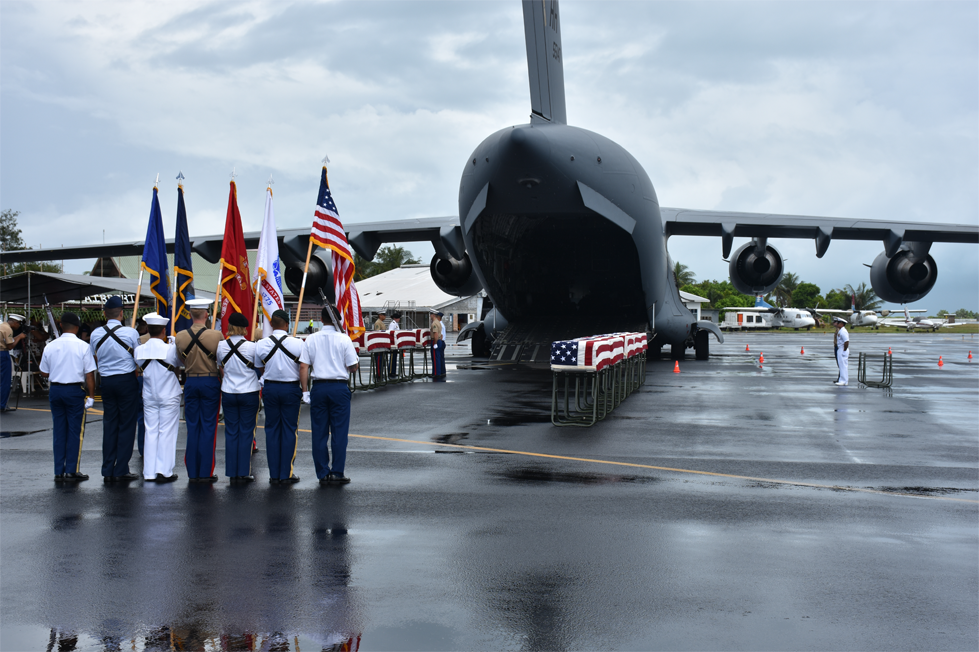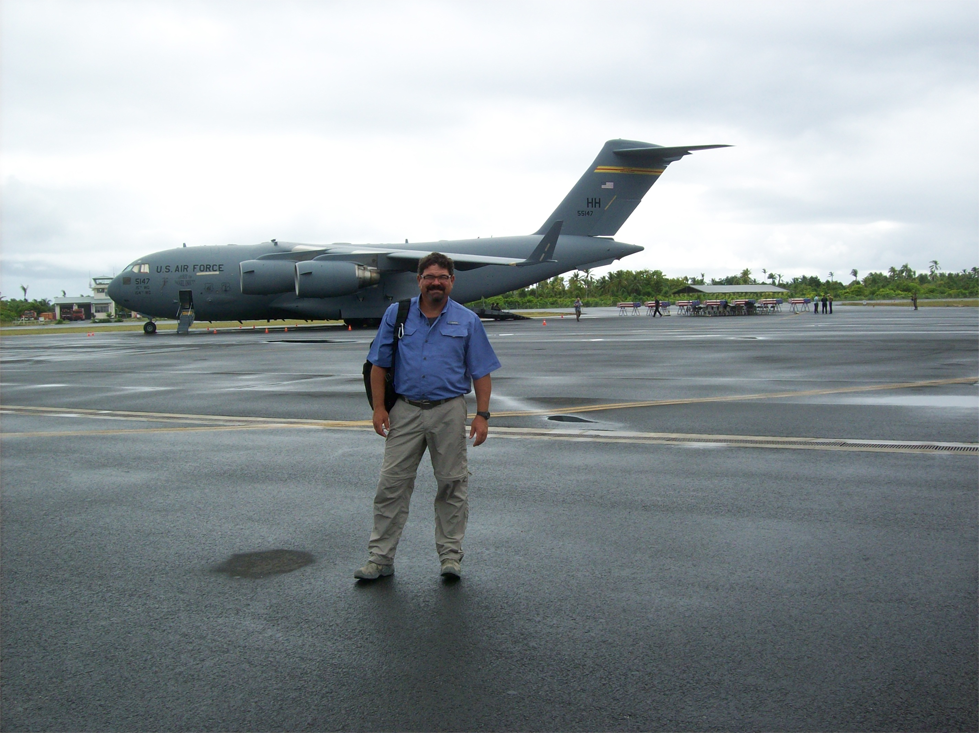OSU anthropologist works for the return of WWII fallen
Wednesday, September 20, 2017


Dr. Stephen Perkins, an associate professor of anthropology with the Oklahoma State University Department of Sociology, recently traveled about 2,500 miles west of Hawaii to assist in the return of the battlefield remains of 24 U.S. personnel who were killed on the Tarawa Atoll in the Central Pacific Ocean during World War II. The recovery and transfer to the U.S. of the remains was coordinated by History Flight, Inc., and represented the second-largest recovery of battlefield remains since the end of the Korean War in 1953.
Tarawa is one of 33 coral atolls that make up the island nation of Kiribati, which was a Japanese stronghold until it was attacked during World War II by U.S. Marines who took the island in a 76-hour battle that left more than 1,100 of their comrades dead. While 300 or so bodies were located and brought home at the end of the war, it wasn’t until History Flight, Inc., a private, non-profit organization, returned to the island 10 years ago to look for the other World War II soldiers missing in action that many more were found.
History Flight’s founder and director, Mark Noah, invited Perkins to return to the island for more volunteer work in helping to identify the remains and join other specialists in an official repatriation ceremony.
“The investment of a decade of work and $6.5 million has resulted in the recovery of extremely significant, but not yet to be disclosed, number of missing American service personnel,” said Noah. “Our transdisciplinary team – including many volunteers – such as forensic anthropologists, geophysicists, historians, surveyors, anthropologists, forensic odontologists, unexploded ordnance specialists, medics, and even a cadaver-dog handler, has excelled in difficult conditions to produce spectacular results.”
On July 25, Perkins attended the repatriation ceremony for the fallen soldiers presided over by Lt. Gen. David Berger, commander of the Marine Corps Forces in the Pacific, marking the official transfer of their remains from the Kiribati government to United States custody. Berger spoke of History Flight’s contribution to bringing home every warrior who fights on behalf of the United States. After loading their remains into a C-17 military transport aircraft one-by-one with a salute and color guard standing by, they were flown to Hickam Air Force Base in Honolulu, Hawaii, for final identification by the U.S. government’s Defense POW/MIA Accounting (DPAA) and eventual return to surviving family members.
“The ceremony is conducted with all of the formality that would normally be accorded someone who was recently killed in combat, except these guys died in 1943 and 1944, more than 70 years ago.” Perkins explains. “I felt really honored to be able to see it. One of the things that really strikes me is that some of those guys flew in on B-24 Liberators, and flew out 73 years later on this huge C-17 aircraft. That represents a lifetime of technology that these guys have not been in the United States. It was an incredible honor to be there.”
History Flight and the DPAA continue to work on locating and recovering personnel missing in action from around the world with the help of archaeologists, such as Perkins. His lifelong fascination with World War II and his professional expertise led him to volunteer on Tarawa Atoll.
“Anthropology is a field which has a lot of opportunities for interesting experiences all over the world,” Perkins says. “This is just one of those opportunities I was able to participate in.”
A native of Stillwater, Perkins earned a master’s degree and doctorate in anthropology from Arizona State University, after receiving his bachelor’s degree in anthropology from the University of Oklahoma.
Current or future OSU students interested in this kind of work can enroll in the sociology degree track, which offers both bachelor of arts and bachelor of science options in anthropology.
